
The Commission on Elections, abbreviated as COMELEC, is one of the three constitutional commissions of the Philippines. Its principal role is to enforce all laws and regulations relative to the conduct of elections in the Philippines.

The government of the Philippines has three interdependent branches: the legislative, executive, and judicial branches. The Philippines is governed as a unitary state under a presidential representative and democratic constitutional republic in which the president functions as both the head of state and the head of government of the country within a pluriform multi-party system.

The Department of Labor and Employment is one of the executive departments of the Philippine government mandated to formulate policies, implement programs and services, and serve as the policy-coordinating arm of the Executive Branch in the field of labor and employment. It is tasked with the enforcement of the provisions of the Labor Code.

The Central Superior Services is a permanent elite civil service authority and the civil service that is responsible for running the bureaucratic operations and government secretariats and directorates of the Cabinet of Pakistan. The Prime Minister is the final authority on all matters regarding the civil service.

The National Police Commission is an agency attached to the Department of the Interior and Local Government (DILG) responsible for the administration and control of the Philippine National Police (PNP). It has the authority to administer police entrance examination, to investigate police anomalies and irregularities, and to summarily dismiss erring police officers.

The Department of Budget and Management is an executive body under the Office of the President of the Philippines. It is responsible for the sound and efficient use of government resources for national development and also as an instrument for the meeting of national socio-economic and political development goals.
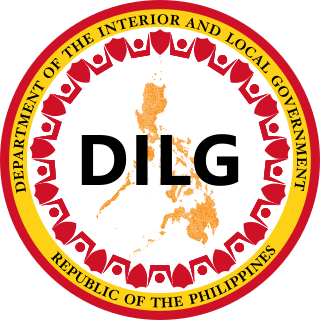
The Department of the Interior and Local Government, abbreviated as DILG, is the executive department of the Philippine government responsible for promoting peace and order, ensuring public safety and strengthening local government capability aimed towards the effective delivery of basic services to the citizenry.
The Civil Services Examination (CSE) is a national competitive examination in India conducted by the Union Public Service Commission for recruitment to higher Civil Services of the Government of India, including the Indian Administrative Service, Indian Foreign Service, and Indian Police Service. It is also colloquially referred to as the UPSC examination, and UPSC CSE. and is conducted in three phases: a preliminary examination consisting of two objective-type papers, and a main examination consisting of nine papers of conventional (essay) type, in which two papers are qualifying and only marks of seven are counted; finally followed by a personality test (interview). A successful candidate sits for 32 hours of examination during the complete process spanning around one year.
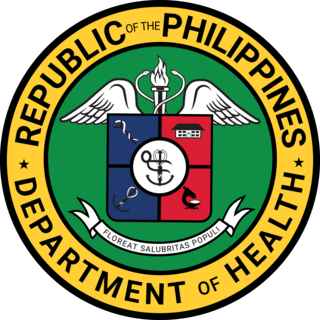
The Department of Health is the executive department of the government of the Philippines responsible for ensuring access to basic public health services by all Filipinos through the provision of quality health care, the regulation of all health services and products. It is the government's over-all technical authority on health. It has its headquarters at the San Lazaro Compound, along Rizal Avenue in Manila.

The Department of Finance is the executive department of the Philippine government responsible for the formulation, institutionalization and administration of fiscal policies, management of the financial resources of the government, supervision of the revenue operations of all local government units, the review, approval and management of all public sector debt, and the rationalization, privatization and public accountability of corporations and assets owned, controlled or acquired by the government.
West Bengal Civil Service (Executive), popularly known as W.B.C.S.(Exe.), is the civil service of the Indian state of West Bengal. For the WBCS (Exe) and other comparative posts, Public Service Commission of West Bengal arranges competitive examinations in three phases every year. These phases are Preliminary, Mains and Personality Test. WBCS is considered to be the premium public service in the state of West Bengal.

The Taft Commission, also known as the Second Philippine Commission, was established by United States President William McKinley on March 16, 1900, following the recommendations of the First Philippine Commission, using presidential war powers while the U.S. was engaged in the Philippine–American War.

Francisco Tiongson Duque III is a Filipino physician and government official who served as Secretary of Health in the Cabinet of President Rodrigo Duterte from 2017 to 2022, a position he had previously held from 2005 to 2009 in the Cabinet of President Gloria Macapagal Arroyo. From 2010 to 2015, he served as the chair of the Civil Service Commission.
The Philippine Bar Examinations is the professional licensure examination for lawyers in the Philippines. The exam is exclusively administered by the Supreme Court of the Philippines through the Supreme Court Bar Examination Committee.
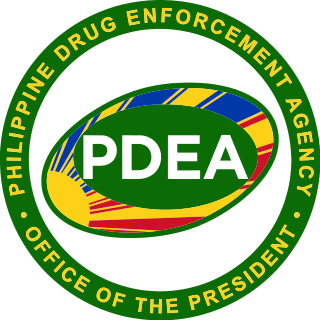
The Philippine Drug Enforcement Agency is the lead anti-drug law enforcement agency, responsible for preventing, investigating and combating any dangerous drugs, controlled precursors and essential chemicals within the Philippines. The agency is tasked with the enforcement of the penal and regulatory provisions of Republic Act No. 9165, otherwise known as the Comprehensive Dangerous Drugs Act of 2002.
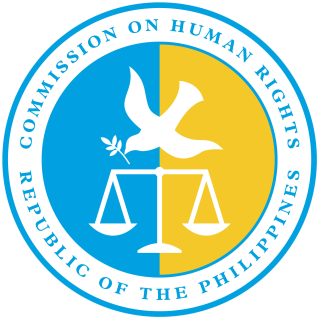
The Commission on Human Rights (CHR) is an independent constitutional office created under the 1987 Constitution of the Philippines, with the primary function of investigating all forms of human rights violations involving civil and political rights in the Philippines.

The Commission on Audit is an independent constitutional commission established by the Constitution of the Philippines. It has the primary function to examine, audit and settle all accounts and expenditures of the funds and properties of the Philippine government.

Ramón Jesús Palmiano Paje is a Filipino civil servant. He was the 19th secretary of the Department of Environment and Natural Resources (DENR) under the administration of President Benigno Aquino III. Prior to his appointment, he was DENR Undersecretary for Field Operations and Executive Director of the Minerals Development Council under the Office of the President in concurrent capacity.

The Insular Government of the Philippine Islands was an unincorporated territory of the United States that was established in 1902 and was reorganized in 1935 in preparation for later independence. The Insular Government was preceded by the United States Military Government of the Philippine Islands and was followed by the Commonwealth of the Philippines.
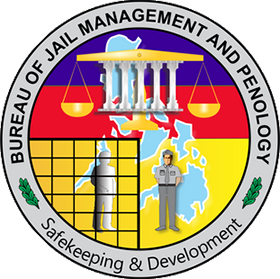
The Bureau of Jail Management and Penology is an attached agency of the Department of the Interior and Local Government mandated to direct, supervise and control the administration and operation of all district, city and municipal jails in the Philippines with pronged tasks of safekeeping and development of its inmates, officially classed as persons deprived of liberty (PDL).






















